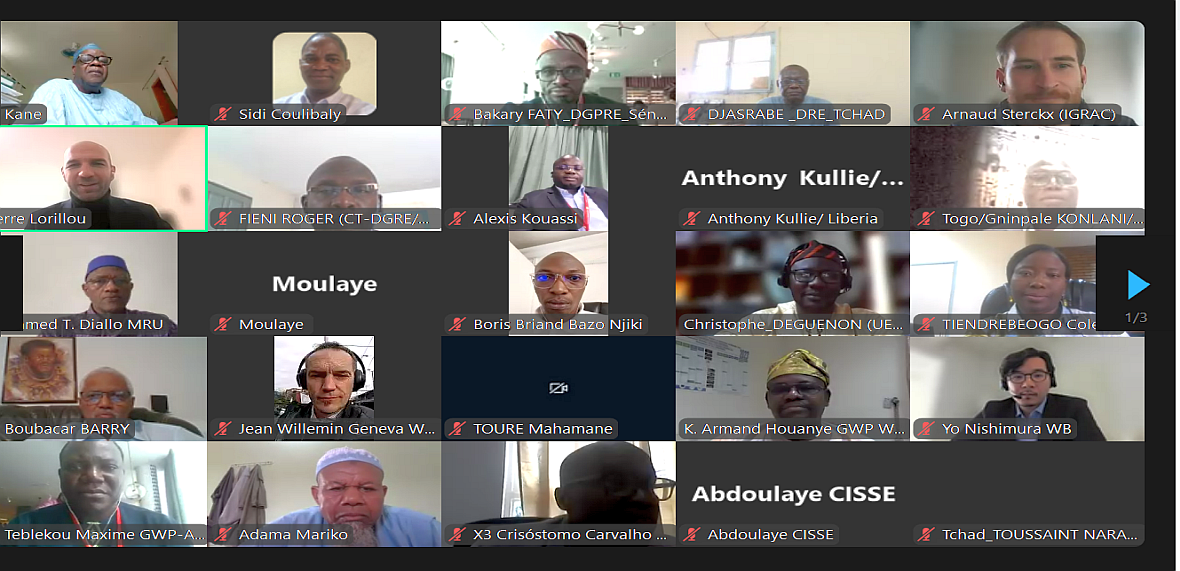The meeting highlighted the importance of cross-border cooperation, investment in water infrastructure and the adoption of integrated approaches to improve water resource management in the region.
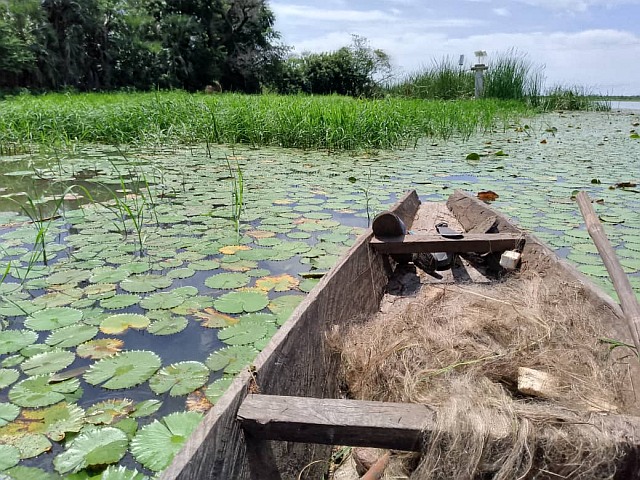 Opening the meeting, Christophe DEGUENON, Director of Water Resources at the WAEMU Commission, said that ‘meeting the regional challenges of life requires coordinated interventions and strong political commitment to achieve climate change resilience, food security and economic growth at the local level. This is why some states in the region, as well as regional organisations, have submitted funding requests to the World Bank in order to obtain its support for the implementation of initiatives for the development, resilience and enhancement of water resources in West Africa. This gave rise to the DREVE programme, which aims to improve the management, resilience and development of water resources. He stressed the importance of cross-border cooperation and announced the four sessions to share the interim results of the thematic groups working on the programme. The participants, representing various regional organisations and states, briefly introduced themselves before the work began.
Opening the meeting, Christophe DEGUENON, Director of Water Resources at the WAEMU Commission, said that ‘meeting the regional challenges of life requires coordinated interventions and strong political commitment to achieve climate change resilience, food security and economic growth at the local level. This is why some states in the region, as well as regional organisations, have submitted funding requests to the World Bank in order to obtain its support for the implementation of initiatives for the development, resilience and enhancement of water resources in West Africa. This gave rise to the DREVE programme, which aims to improve the management, resilience and development of water resources. He stressed the importance of cross-border cooperation and announced the four sessions to share the interim results of the thematic groups working on the programme. The participants, representing various regional organisations and states, briefly introduced themselves before the work began.
The programme has four pillars, to which nine thematic groups are working to add content.
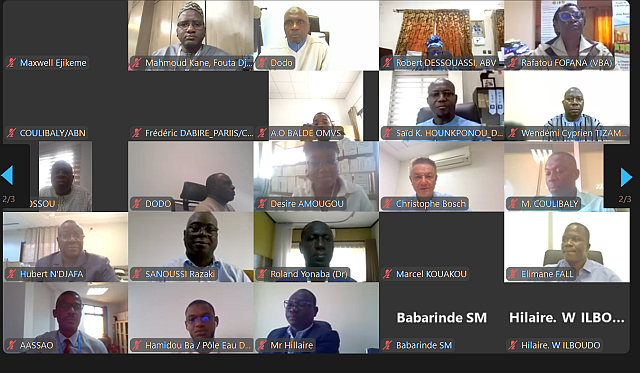 The main objective of the meeting was to examine the interim reports from the thematic groups and define the priority activities for 2025. The introductory session focused on the DREVE initiative (Development, Resilience and Enhancement of Transboundary Waters in West Africa), in particular on pillar four concerning the regional platform for strengthening regional security and climate resilience.
The main objective of the meeting was to examine the interim reports from the thematic groups and define the priority activities for 2025. The introductory session focused on the DREVE initiative (Development, Resilience and Enhancement of Transboundary Waters in West Africa), in particular on pillar four concerning the regional platform for strengthening regional security and climate resilience.
The report on water resources management in West Africa noted the progress made in policy, legal and institutional frameworks at national, regional and basin levels. It highlighted three main areas for strengthening these frameworks, developing basin organisations and improving negotiation capacities. An action plan for 2025-2026 was proposed, including the revision of the regional water resources policy and the dissemination of directives on the management of shared waters and the development of hydraulic infrastructures.
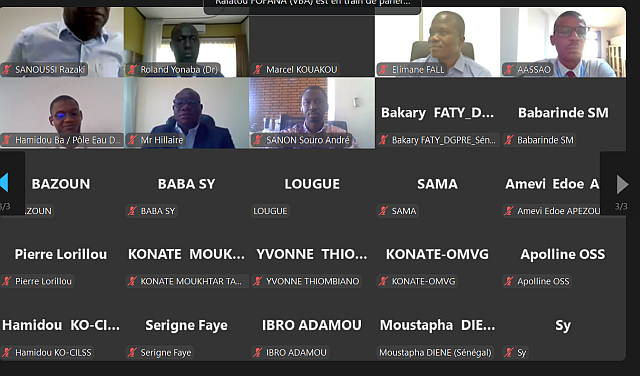 The meeting provided an opportunity to share experiences for strategic foresight. Examples of the transformative power of water in different regions of the world were presented, including China, Switzerland, Turkey, Morocco, Peru and the United States. The importance of investment in water infrastructure, cross-border collaboration and innovative financing models for economic development and the fight against poverty was highlighted. West Africa's successes in water management were also highlighted, with suggestions that other regions of the world could learn from them, while highlighting the global interconnectedness of the water cycle and its impact on different parts of the world.
The meeting provided an opportunity to share experiences for strategic foresight. Examples of the transformative power of water in different regions of the world were presented, including China, Switzerland, Turkey, Morocco, Peru and the United States. The importance of investment in water infrastructure, cross-border collaboration and innovative financing models for economic development and the fight against poverty was highlighted. West Africa's successes in water management were also highlighted, with suggestions that other regions of the world could learn from them, while highlighting the global interconnectedness of the water cycle and its impact on different parts of the world.
An in-depth analysis of the challenges and opportunities related to climate risk and water cycle management in West Africa and the Sahel was presented. The importance of an integrated approach to the water cycle, the need for increased investment and better coordination between stakeholders was highlighted. Discussions highlighted the central role of water in adapting to climate change, and the need to set up a regional solidarity fund to meet the growing demand for technical assistance in the hydro-meteorological field.
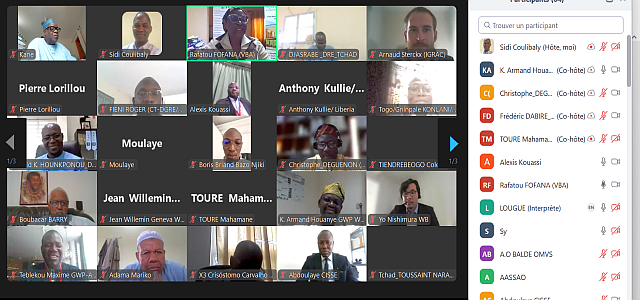 The challenges associated with capacity building and project training were highlighted. The problem of the mobility of trained staff and the need to involve universities and students in projects are parameters to be taken into account, as well as the identification of real training needs and the development of online training programmes to create a critical mass of beneficiaries. It is important to include private universities in capacity-building efforts.
The challenges associated with capacity building and project training were highlighted. The problem of the mobility of trained staff and the need to involve universities and students in projects are parameters to be taken into account, as well as the identification of real training needs and the development of online training programmes to create a critical mass of beneficiaries. It is important to include private universities in capacity-building efforts.
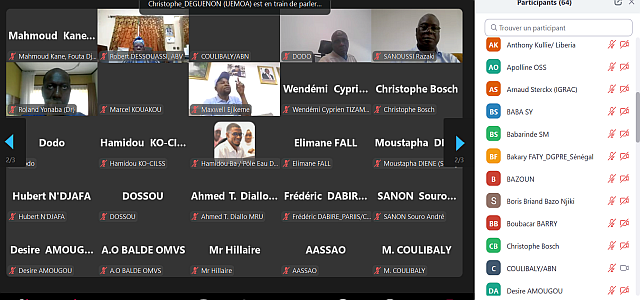 The regional programme for the Fouta Djallon Highlands highlights the importance of this ecosystem and the need to preserve it for West Africa and beyond. A regional approach to innovative financing and better coordination between existing initiatives must be a constant. The programme aims to establish a federating framework, operationalise a regional observatory and improve the sustainable management of natural resources, with particular emphasis on institutional cooperation within ECOWAS.
The regional programme for the Fouta Djallon Highlands highlights the importance of this ecosystem and the need to preserve it for West Africa and beyond. A regional approach to innovative financing and better coordination between existing initiatives must be a constant. The programme aims to establish a federating framework, operationalise a regional observatory and improve the sustainable management of natural resources, with particular emphasis on institutional cooperation within ECOWAS.
Next steps
At the end of this meeting:
- All thematic groups to finalise the thematic group reports by 30 January 2025;
- A DREVE stakeholder forum will be organised in the first quarter of 2025 to validate the final thematic group reports;
- Member countries are invited to confirm their focal point for pillar four of DREVE;
- Strengthening the system for collecting data on water resources for thematic group 6;
- Pôle Eau Dakar is invited to begin preliminary studies for the think tank on water, peace and prosperity;
- The coordination team is invited to reflect further on capacity building, financing and the sustainability of actions.
